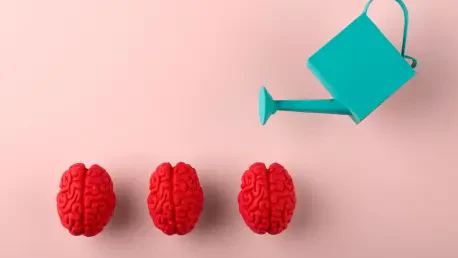In an era where mental sharpness is increasingly valued, brain training apps have surged in popularity, promising to enhance cognitive skills like memory, focus, and problem-solving through just a few minutes of daily digital exercises. These platforms, often marketed with claims of scientific backing, have captivated millions of users worldwide who are eager to boost their mental agility from the convenience of their smartphones. With the allure of games designed to challenge the mind, the question looms large: can these apps truly deliver on their promises, or are they merely a modern gimmick? Scientific research offers a complex picture, blending cautious optimism with skepticism about the real-world impact of such tools. This exploration delves into the evidence behind brain training apps, examining their potential benefits, limitations, and the broader strategies needed for cognitive health. By synthesizing expert insights and studies, a clearer understanding emerges of whether these digital solutions are a worthwhile investment for those seeking to maintain or improve their mental faculties over time.
Exploring the Promise of Cognitive Enhancement
The concept behind brain training apps rests on the fascinating idea of neuroplasticity, which refers to the brain’s remarkable ability to adapt and form new neural connections throughout life. Developers of these apps design short, engaging mini-games to target specific cognitive domains such as attention, memory, and logical reasoning, with the goal of strengthening mental capacity through consistent practice. Proponents argue that regular engagement with these exercises can lead to noticeable improvements in mental performance, particularly for aging individuals concerned about cognitive decline. The accessibility of these tools is a significant draw, allowing users to fit brain training into busy schedules without the need for specialized equipment or in-person sessions. This democratization of cognitive enhancement has fueled their widespread adoption, as millions turn to digital solutions to keep their minds sharp in an increasingly demanding world. However, while the premise is enticing, the extent to which these apps can deliver measurable, lasting benefits remains a subject of intense debate among researchers and experts.
Beyond the appealing theory, the practical appeal of brain training apps lies in their user-friendly design and the gamification of mental challenges, which can make the process feel less like a chore and more like entertainment. Many users report a sense of achievement as they progress through levels or improve their scores, fostering motivation to continue. Yet, this raises a critical question about whether the skills honed within the app translate to everyday life scenarios, such as better decision-making at work or improved recall during conversations. Scientific scrutiny often points to a gap between performance in app-based tasks and broader cognitive gains, suggesting that while users might get better at the games themselves, the impact on overall brain function may be limited. This distinction is vital for setting realistic expectations, as the allure of quick fixes for mental acuity can sometimes overshadow the need for a more comprehensive approach to brain health that goes beyond digital interfaces.
Scientific Evidence: A Mixed Verdict
When it comes to hard evidence, research on brain training apps presents a nuanced and often contradictory landscape that tempers initial enthusiasm with caution. Studies have shown that certain apps can lead to improvements in specific areas like working memory or processing speed, particularly when users engage consistently over extended periods. However, a board-certified psychiatrist has noted that while these gains are measurable within the controlled environment of the app, there is scant proof that they translate into meaningful real-world benefits, such as enhanced productivity or problem-solving in daily tasks. Larger cognitive advantages are often observed in activities that stimulate multiple neural networks simultaneously, like learning a new language or engaging in physical exercise. This suggests that while brain training apps may offer a piece of the puzzle, they are far from a complete solution for those aiming to bolster their mental capabilities in a holistic manner.
Further examination of scientific findings reveals another layer of complexity, often termed the “practice effect,” where users improve at the specific tasks within the app due to familiarity rather than a genuine enhancement of underlying cognitive abilities. Neurotherapists emphasize that this phenomenon can create a false sense of progress, as excelling at a game does not necessarily equate to broader mental improvements. Moreover, these digital tools lack the capacity to address individual nuances or complex conditions like anxiety or attention deficits, which require tailored interventions. The consensus among many experts is that while brain training apps can serve as an accessible starting point for mental stimulation, they should not be viewed as a substitute for personalized therapies or lifestyle adjustments that tackle the root causes of cognitive challenges. This balanced perspective underscores the importance of tempering expectations with a critical eye on the evidence.
Limitations and Broader Considerations
Despite their accessibility, brain training apps come with notable drawbacks that limit their effectiveness as standalone solutions for cognitive health. A significant concern is the lack of lasting impact, as improvements often fade when usage stops, indicating that the benefits are not deeply ingrained. Additionally, these apps are generally designed with a one-size-fits-all approach, which fails to account for the unique needs of individuals with specific cognitive concerns or conditions. Experts argue that such tools cannot replicate the depth of personalized therapies like neurofeedback, nor can they address underlying factors such as chronic stress or poor sleep, both of which profoundly affect brain function. This limitation highlights a critical gap, suggesting that while these apps may offer a convenient entry point, they fall short of providing comprehensive support for sustained mental wellness in diverse populations.
Another crucial aspect to consider is the risk of over-reliance on digital tools at the expense of more proven strategies for brain health. While apps can be engaging, they often distract from the value of multidimensional activities that engage the brain on multiple levels, such as social interactions or learning new skills in real-world settings. Research consistently shows that lifestyle factors, including a balanced diet rich in anti-inflammatory nutrients and regular physical activity, play a more substantial role in maintaining cognitive vitality. The inability of apps to integrate these broader elements into their framework further underscores their supplementary nature. For individuals seeking meaningful and enduring cognitive benefits, a diversified approach that combines mental exercises with tangible, real-life practices offers a more robust path to protecting and enhancing brain function over the long term.
Building a Holistic Approach to Brain Health
To achieve sustainable cognitive health, experts advocate for a multifaceted strategy that extends well beyond the scope of brain training apps, incorporating essential lifestyle elements. A neurotherapist with expertise in nutrition emphasizes the importance of an anti-inflammatory diet packed with omega-3 fatty acids, antioxidants, and polyphenols to nourish brain cells and combat oxidative stress. Regular aerobic exercise is also critical, as it enhances blood flow to the brain and stimulates the production of brain-derived neurotrophic factor, a protein vital for neural growth. Adequate sleep emerges as another cornerstone, facilitating memory consolidation and clearing toxins from the brain during rest. These foundational practices, when prioritized, create a supportive environment for cognitive resilience that digital tools alone cannot replicate, offering a more grounded approach to mental well-being.
Complementing these physical health strategies, mental and emotional wellness practices are equally vital in sustaining brain health over time. Techniques such as mindfulness and stress management help safeguard critical brain regions from the detrimental effects of chronic tension, which can impair cognitive function if left unchecked. Social engagement and continuous learning through novel experiences also play a powerful role in maintaining mental flexibility, as they challenge the brain in dynamic ways that static app exercises cannot. By weaving together these diverse elements—nutrition, exercise, rest, stress reduction, and meaningful interactions—a comprehensive framework emerges that addresses the complexity of cognitive health. Brain training apps can fit into this broader picture as a minor component, but their role remains secondary to the profound impact of a well-rounded lifestyle dedicated to nurturing the mind.
Reflecting on a Balanced Path Forward
Looking back, the journey through the science of brain training apps reveals a landscape of modest potential tempered by significant limitations. Studies and expert opinions converge on the understanding that while these digital tools offer some benefits in specific cognitive areas, their ability to create lasting, transferable improvements in daily life is often overstated. The practice effect and the lack of personalization stand out as key shortcomings, underscoring that apps alone cannot address the deeper factors influencing mental acuity. Instead, the evidence points to the power of integrating varied activities, from physical exercise to social connections, as more effective means of supporting brain health. Moving forward, the focus should shift toward crafting personalized, holistic strategies that blend technology with lifestyle changes. Embracing a balanced approach—where digital exercises complement rather than dominate—provides a practical roadmap for those committed to preserving cognitive vitality in an increasingly complex world.









